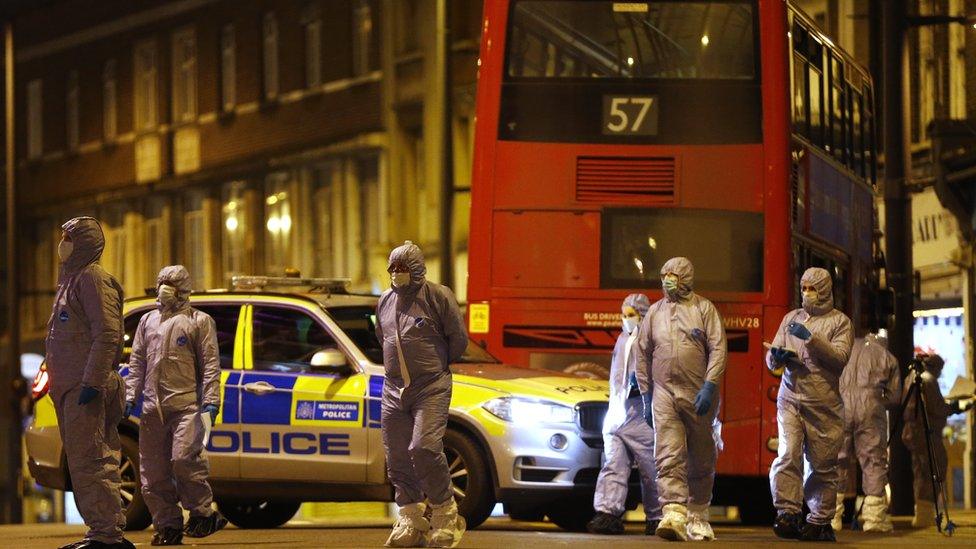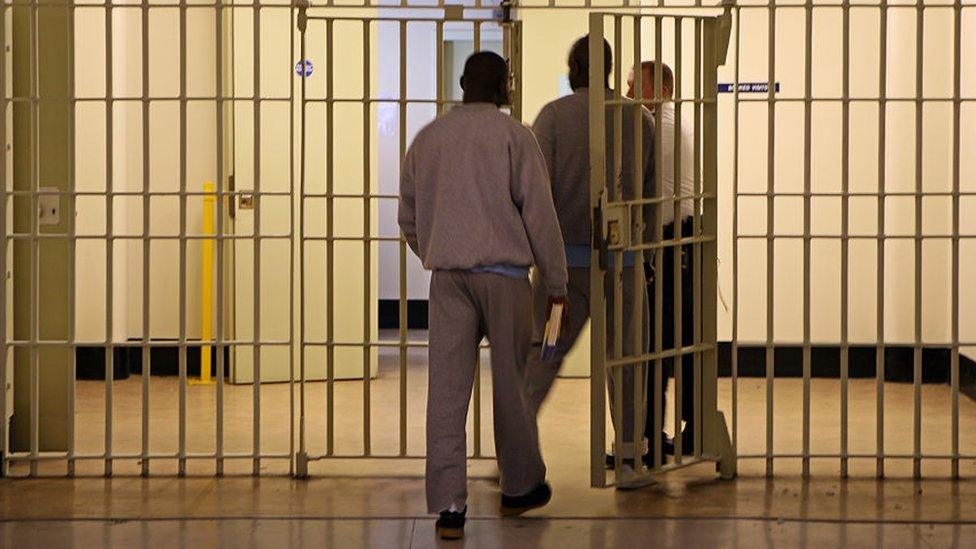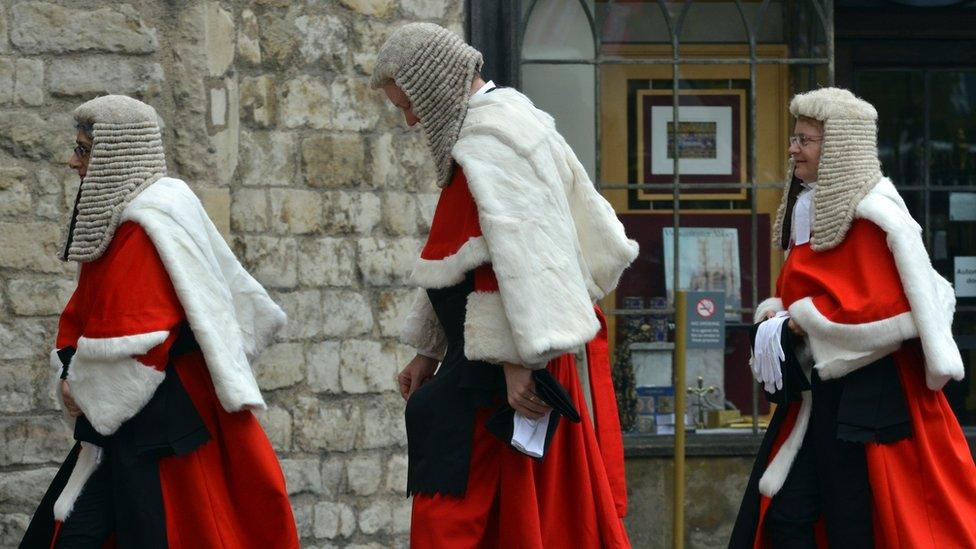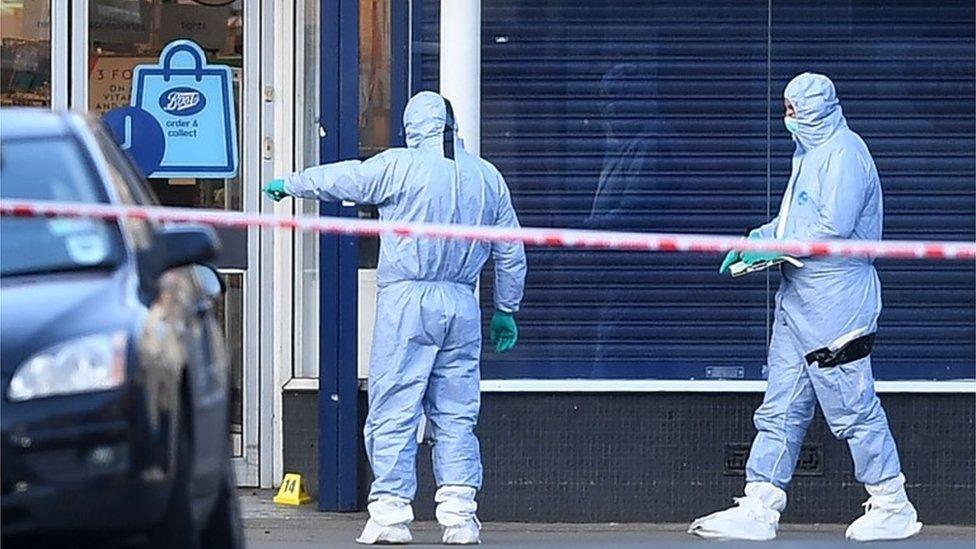Terror offenders due to be freed 'told they will not be' - lawyer
- Published

The emergency legislation, pushing back the release date of terror offenders, was announced after the Streatham attack
Terror offenders who were due to be released from prison in the next two months are being told they will not be let out under planned new laws.
Earlier this week, the government said that new terror legislation to end automatic early release will apply to current as well as future offenders.
Lawyer Simon Creighton said one client who was due to be freed in March had been told his release date has changed.
Mr Creighton said a number of offenders were likely to challenge the new laws.
"I'd imagine it's inevitable that it will go the Supreme Court," he said.
Mr Creighton said those affected, who are currently serving sentences, were a "wide range" of offenders including animal rights activists, "people fighting Islamic terrorism with the Kurds", and Islamist extremists.
The government had already announced plans for tougher terror laws, including an end to automatic early release half-way through their sentence. Instead, it would be up to the Parole Board to decide if people convicted of terrorism offences should be released after serving two thirds of their sentence.
But there were no proposals for the new measures to apply retrospectively, until last Sunday's attack in Streatham when convicted terror offender Sudesh Amman - who had been out of prison less than two weeks - stabbed two people.
It followed the London Bridge attack in November last year, when another convicted terror offender Usman Khan was on licence when he killed two people.
Responding to the latest attack in south London, the government announced that the new terror legislation - once passed by Parliament - would apply to offenders currently serving sentences.
Ministers are trying to get the legislation passed before the next terror offender is due to be released.

Sudesh Amman was under covert surveillance when he stabbed two people in south London on Sunday
"We've been told by one of our clients that he's had a notification that his release date is going to be changed as a result of this legislation," said Mr Creighton.
He said it was "very disconcerting", saying "the principle of not changing prison sentences, not changing any criminal sentences, is deeply embedded in English law".
"It really is quite a troubling idea about the certainty of the criminal process that long after conviction you can be called back as a result of a change in legislation and told your sentence doesn't stand anymore - you can serve longer, you can do more time. It's really against all our legal traditions."
Court challenges
He added that he imagines there will be "a number of people wanting to challenge this and that the cases are likely to be consolidated as one case before the High Court initially".
He added: "I'd imagine it's inevitable that it will go the Supreme Court. It's something that is so fundamental to our principles of how we run justice and society that it has to go to the Supreme Court."
Announcing the emergency legislation earlier this week, Justice Secretary Robert Buckland said it would apply to serving prisoners because the UK faces "an unprecedented situation of severe gravity".
Justice Secretary Robert Buckland: "We face an unprecedented situation of severe gravity"
The government's Counter-Terrorism Bill would also ensure people convicted of serious offences, such as preparing acts of terrorism or directing a terrorist organisation, spend a minimum of 14 years in prison.
There are currently at least 74 people who were jailed for terror offences and subsequently freed on licence.
There are also 224 people convicted of terrorism offences in prison in Great Britain, most of whom must be released at the end of their custodial sentence.
- Published6 February 2020

- Published19 December 2019

- Published5 February 2020
